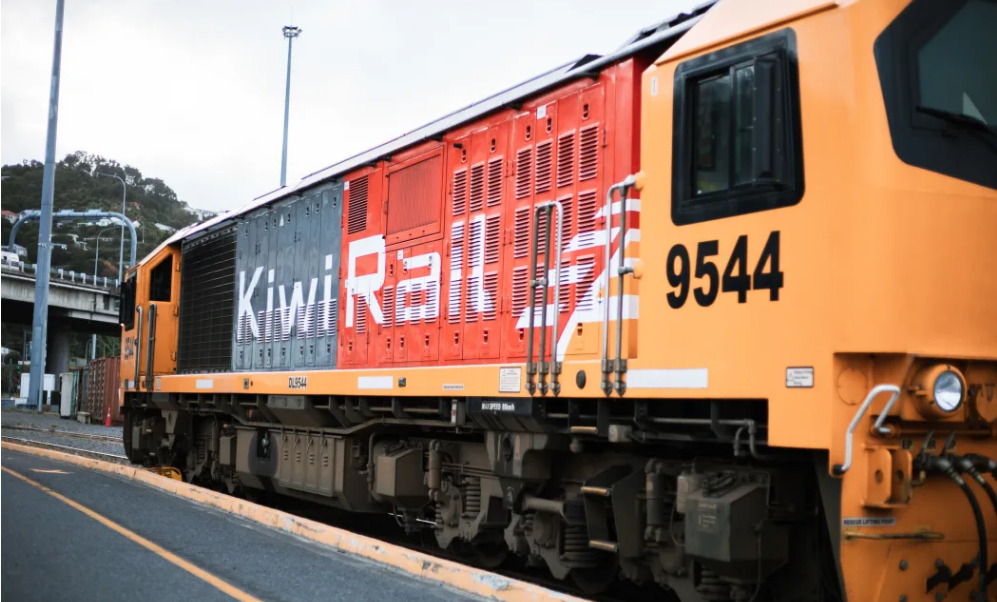
A transport union says KiwiRail plans to downsize its team responsible for health and safety by more than a quarter, while the organisation maintains it's "relentlessly focused" on safety.
The state-owned enterprise has confirmed it is consulting on proposals for changes in some areas, but will not say how many jobs could be affected.
"Our transformation programme is under way, and at this stage we are in the process of consulting on proposals for change in some corporate areas," said Andrew Norton, chief people and communications officer.
But the Rail and Maritime Transport Union said about two dozen jobs were on the line in the Zero Harm Group, a team of about 80 staff tasked with driving KiwiRail's health and safety performance.
"There is a proposal for around two dozen of them to have to be redeployed, or unfortunately made redundant," general secretary Todd Valster said.
He did not know how directly Zero Harm Group staff were involved with day-to-day safety work.
"It is a group that has grown quite significantly in recent years... the company is looking at can they do safety around rail in a different way? So putting it out to different parts of the business rather than having a dedicated team."
Consultation with staff began on Thursday last week, but there would be more cuts to come, he said.
"We do have membership within the Zero Harm team, and we'll be trying to help them as best as possible.
"Redundancy is always the last option, we have redeployment, relocation, alternative positions... there will be some positions for people to apply for, but it is a downsizing."
KiwiRail 'relentlessly focused on safety'
KiwiRail would not confirm whether the Zero Harm Group was one of the "corporate areas" affected.
"We will continue to talk first to our people and our union partners as our programme is rolled out," Norton said.
"As these are proposals only it is not possible to comment on the number of roles that will be affected until we have completed our consultation processes."
But the organisation was "relentlessly focused on safety," he said.
"Over the past 18 months there has been a significant programme of work to shift from a reliance on the Zero Harm team to 'do safety' for the business, and instead move to a more proactive approach of line led safety culture and leadership.
"That programme has seen the upskilling of more than 300 senior leaders and 300 frontline teams as safety leadership facilitators and mentors and on refocusing the Zero Harm technical specialists we employ to ensure our business has the tools and support KiwiRail's needs, in the right areas."
The number of near-miss events that could lead to a death or serious harm reduced 43 percent in the year to the end of May, he said. And there was a 10 percent decrease in KiwiRail's "total recordable injury frequency rate" - its safety indicator - during the same time period.
KiwiRail's website said its "Zero Harm vision is to become the leading health and safety organisation in New Zealand".
But the Transport Investigation Commission (TAIC) in March added rail worker safety to its list of the sector's systemic issues after two workers were nearly hit by a train in 2023.
There have been 13 rail worker safety incidents notified to the transport watchdog since the beginning of this year, and nine of those happened after rail worker safety was added to the watchlist.
Meanwhile, KiwiRail has been marred with controversy after its Aratere ferry ran aground north of Picton last month and Transport Minister Simeon Brown raised serious concerns about the maintenance of its fleet.













